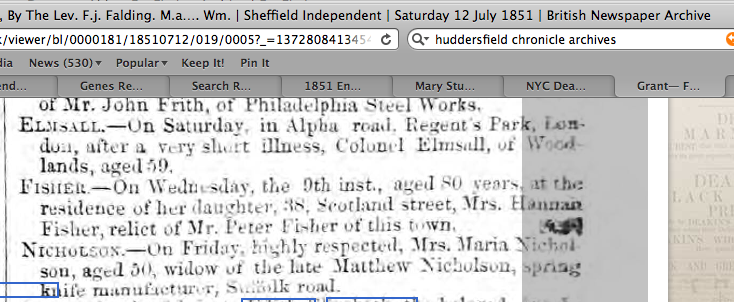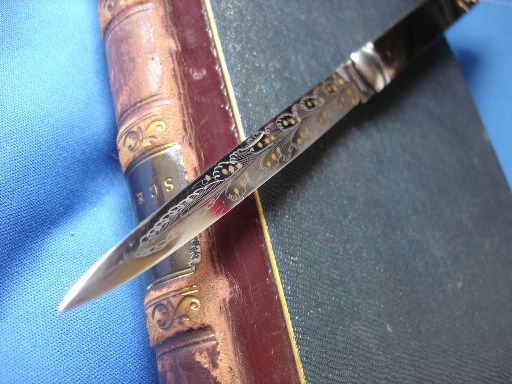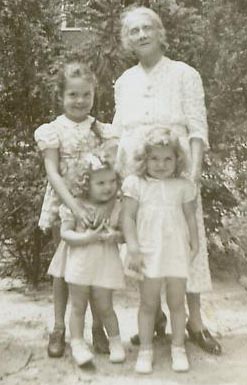|
"The Conditions of the Working-Class in
England in 1844"
by Frederick Engels
Sheffield
"By far the most unwholesome work is the grinding of knife-blades and
forks, which, especially when done with a dry stone, entails certain
early death. The unwholesomeness of this work lies in part in the bent
posture, in which chest and stomach are cramped; but especially in the
quantity of sharp-edged metal dust particles freed in the cutting,
which fill the atmosphere, and are necessarily inhaled. The dry
grinders' average life is hardly thirty-five years, the wet grinders'
rarely
exceeds forty-five.
Dr Knight, in Sheffield, says:
I can convey some idea of the injuriousness of this occupation only by
asserting that the hardest drinkers among the grinders are the longest
lived among them, because they are longest and oftenest absent from
their work. There are, in all, some 2,500 grinders in Sheffield. About
150 (80 men and 70 boys) are fork grinders; these die between the
twenty-eighth and thirty-second years of age. The razor grinders, who
grind wet as well as dry, die between forty and forty-five years, and
the table cutlery grinders, who grind wet, die between fortieth and
fiftieth year.
The same physician gives the following description of the course of the
disease called grinders' asthma:
They usually begin their work in the fourteenth year, and if they have
good constitutions, rarely notice any symptoms before the twentieth
year. Then the symptoms of their peculiar disease appear. They suffer
from shortness of breath at the slightest effort in going up hill or up
stairs, they habitually raise the shoulders to relieve the permanent
and increasing want of breath; they bend forward, and seem, in general,
to feel most comfortable in the crouching position in which they work.
Their complex ion becomes dirty yellow, their features express anxiety,
they complain of pressure on the chest. Their voices become rough and
hoarse, they cough loudly, and the sound is as if air were driven
through a wooden tube. From time to time they expectorate considerable
quantities of dust, either mixed with phlegm or in balls or cylindrical
masses, with a thin coating of mucus. Spitting blood, inability to lie
down, night sweat, colliquative diarrhoea, unusual loss of flesh, and
all the usual symptoms of consumption of the lungs finally carry them
off, after they have lingered months or even years, unfit to support
themselves or those dependent upon them. I must add that all attempts
which have hitherto been made to prevent grinders' asthma, or to cure
it, have wholly failed.
All this Knight wrote ten years ago; since then the number
of grinders and the violence of the disease have increased though
attempts have been made to prevent it by covered grindstones and
carrying off the dust by artificial draught. These methods have been at
least partially successful, but the grinders do not desire their
adoption, and have even destroyed the contrivance here and there, in
the belief that more workers may be attracted to the business and wages
thus reduced; they are for a short life and a merry one. Dr Knight has
often told grinders who came to him with the first symptoms of asthma
that a return to grinding means certain death, but with no avail. He
who is once a grinder falls into despair, as though he had sold himself
to the devil" ...
|






